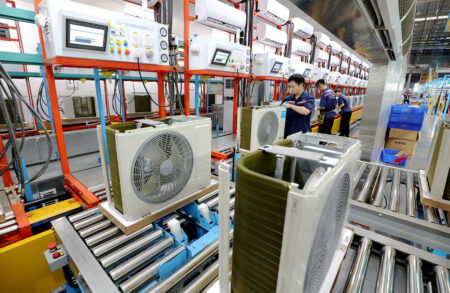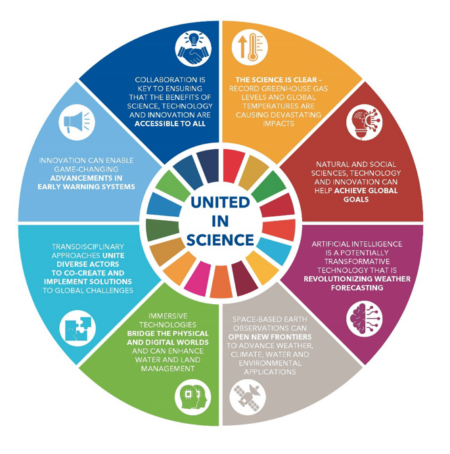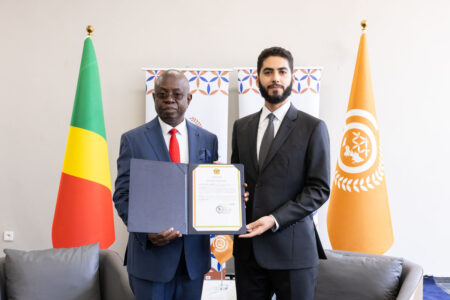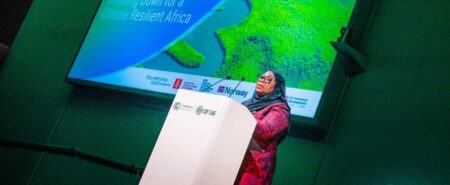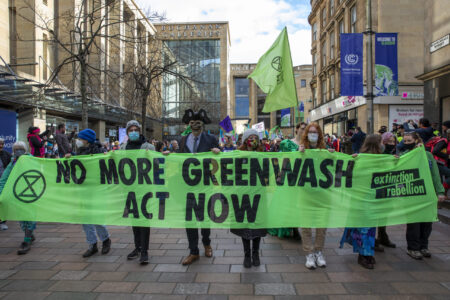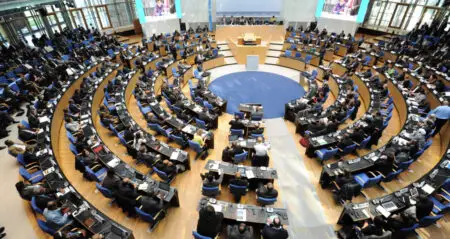- How transition finance can catalyse Africa’s green industrial revolution
- Stanbic PMI Report: Mixed performance as Kenya’s agriculture, construction offset manufacturing decline
- Uganda’s land management gets a tech makeover to boost transparency
- Nigeria’s output dips fastest in 19 months on a sharp rise in costs
- Apple faces growing backlash over Congo exploitation
- Why East Africa is staring at higher wheat prices in 2025
- Nairobi Gate SEZ pumps $7 million into Kenya’s agro-processing industry
- What impact will the US election have on Africa?
Browsing: climate action
- The market for sustainable cooling systems in developing economies is set to hit $600 billion by 2050. Research shows that sustainable cooling systems can cut cooling-related emissions by almost 50%.
- They can also help lower electricity bills, reduce equipment costs, and power sector investments by $8 trillion by 2050.
- Unlocking finance, in particular private finance, is essential to support the transition to sustainable cooling across developing economies.
Economies in Africa are projected to experience the fastest growth in cooling systems, a new survey by the International Finance Corporation and the UN Environment Programme (UNEP)-led Cool Coalition shows.
Globally, Africa is poised to see her cooling systems industry expand by a factor of seven closely followed by countries in South Asia which will see this market segment quadruple.
“The sustainable cooling market represents at least a 600-billion-dollar opportunity for the private sector, …
- Multi-agency report highlights challenges and opportunities.
- Summit of the Future decisions: a choice between breakthrough or breakdown.
- Increasing climate change impacts reverse development gains.
- Africa’s blue and green economy is projected to be the new avenue that will drive investments in Africa
- The continent, with its vast coastline and rich marine resources, is poised to harness the immense potential of Africa’s blue and green economy
- According to ADFDB, 80 per cent of global trade is maritime. Oceans also provide billions of people with food, medicine, renewable energy, and natural resources.
Three Kenyan startups are among ten selected across the continent to benefit from $550,000 (Sh70.7 million) in capital to grow their operations towards boosting Africa’s blue and green economy sectors.
Kenya produced the highest number of startups on the list (three), followed by Rwanda with two. South Africa, Madagascar, Mozambique, Nigeria, and Tanzania each produced one enterprise.
From Kenya, Samaking, Plas Tech, and Ark will each receive $55,000 (Sh7.1 million) in funding to expand across Africa.
These ten ventures are part of the innovative, …
- DRC Joins the Organisation of Southern Cooperation after depositing the Instrument of Acceptance
- Secretary-General Manssour Bin Mussallam received the Instrument of Acceptance.
- The OSC, aimed at fostering cooperation and development among Southern Hemisphere countries
The Republic of the Congo has consolidated its full membership status of the Organisation of Southern Cooperation (OSC) by depositing the Instrument of Acceptance by Daniel Owassa, Ambassador of the DRC to Ethiopia and Permanent Representative to the African Union.
Secretary-General Manssour Bin Mussallam received the Instrument of Acceptance at a handover ceremony yesterday at the OSC Headquarters in Addis Ababa.
The Republic of the Congo is a founding member of the OSC. The depositing of the Instrument of Acceptance signifies the completion of the full membership process by countries in the Global South.
Read Also: SkyPower, AFC, and DRC join forces for $2.3Bn Green Giant project
H.E. Bin Mussallam said the occasion marked the beginning …
- Analysts observe numerous loopholes in global climate talks, with a failure to address glaring food security concerns.
- Financial commitments for food systems remain low, affecting implementation, and leaving millions of people hungry.
- Agriculture accounts for a quarter of global greenhouse gas emissions.
For the very first time, food systems were finally discussed at the just-ended COP28 in Dubai late last year, but analysts are up in arms, asking if it's a 'too little, too late' scenario.
“Given the profound impact of agricultural practices and food consumption patterns on our planet's health, this attention is long overdue,” notes the Alliance for Food Sovereignty in Africa (AFSA) in its review of the COP28 outcome.
Better late than never, so “though the talks' long overdue focus on food and agriculture ultimately disappointed, it provides a starting point for future action and advocacy.”
COP28 was held in Dubai late last year, and while there…
- President Samia Suluhu Hassan highlighted the need for international commitment to climate agreements and innovative financing, including a $700 million green bond initiative for adaptation and mitigation strategies while representing Tanzania at COP28.
- Through the African Group of Negotiators, African nations pushed for a just energy transition and increased climate financing, advocating for the right to use fossil fuels for development before transitioning to renewable energy sources.
- Global leaders recognized Africa’s climate adaptation needs, with significant pledges such as the UK’s GBP 1.5 billion commitment for adaptation in Africa by 2025 and the African Development Bank Group’s initiative to mobilize $14 billion for low-income African countries.
Tanzania at COP28
Tanzanian President Dr Samia Suluhu Hassan played a pivotal role at the COP28 climate summit in Dubai, where she emphasized the critical need for the international community to fulfil unmet commitments related to climate change. Her speech brought to the fore …
As COP28 unfolds with its myriad discussions and commitments, a less visible but equally critical issue looms on another continent – the pervasive problem of greenwashing in Africa. From the corridors of corporate power to the burgeoning startup ecosystem, greenwashing emerges as a misleading marketing tactic and a significant barrier to genuine environmental and social progress in Africa.
In Africa’s corporate sector, greenwashing has become a strategic tool used by both corporations and governments to cover up environmentally detrimental practices. This issue is acutely critical in a continent where environmental conservation is not just a matter of policy but survival.…
Global climate negotiators have reached a framework for climate financing to deal with loss and damage in the run-up to the COP28 in Dubai.…
[elementor-template id="94265"]





